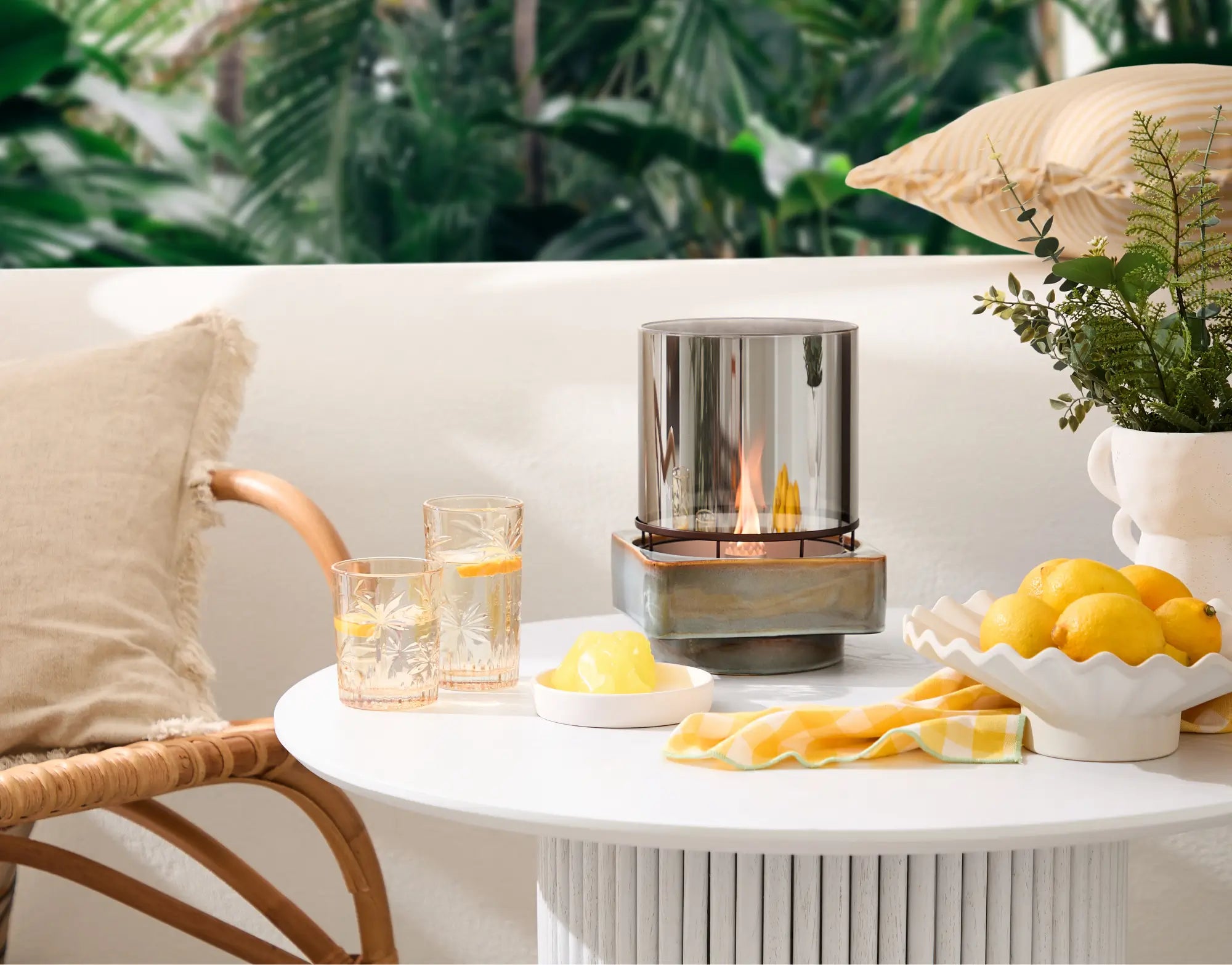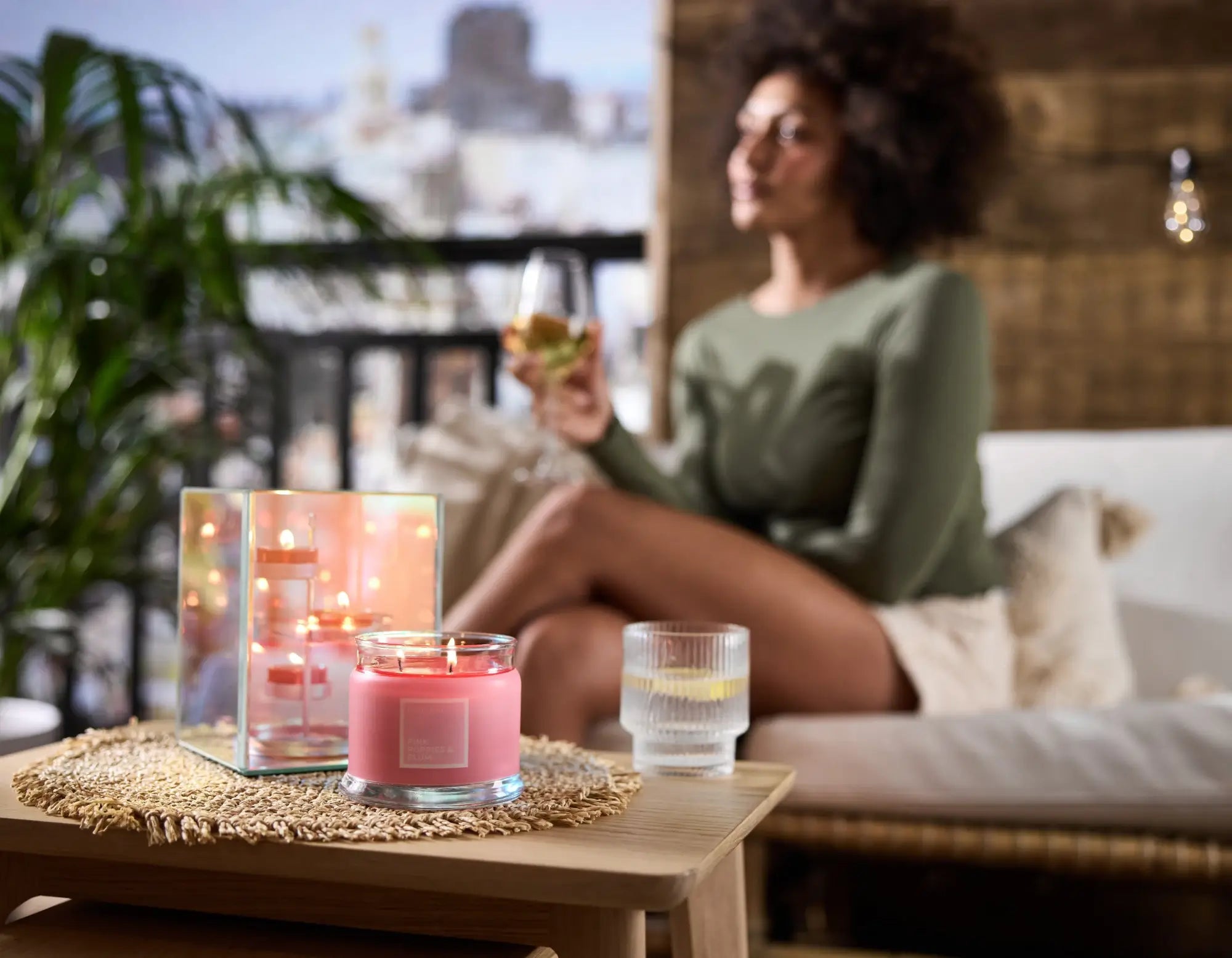In today’s society, many people are seeking self-care and are looking for ways to cope with mounting stress levels. From work-induced anxiety to unexpected societal changes, the demand for stress relief is rising.
Improving our customers’ mood states is incredibly important to us, so we wanted to find out how stress affects each of us and how we deal with it. We reached out to the PartyLite community to understand what causes them stress and whether having a morning routine can help to relieve it. And, most importantly, we wanted to know which specific morning routine activity best helps them to relieve those stresses and strains.
What makes a Morning Routine?
We’re aware of the importance of starting the day the right way, but for many of us, mornings are anything but stress free. From the moment we’re woken up by our alarms and have rushed to get ready while juggling life tasks, we often feel a mounting anxiety that we carry with us throughout the day.
In fact, there’s science to prove that we are more susceptible to stress in the mornings. Studies have found that healthy people often experience a spike in cortisol production when they wake up. Don’t worry, we don’t expect you to be chemistry experts - cortisol is the primary stress hormone that your body creates as a response to combat stress.
So it’s no wonder that many of us have developed coping mechanisms to deal with this morning bout of anxiety.
Whether it’s making the bed, meditating or jumping into the shower, many of us stick to a specific set of tasks to give us some sort of guidance and mental clarity. You may not have even been aware that you’re doing it.
But do these routines actually work to help combat and keep feelings of stress at bay?
Let’s take a look at what we found out.

Our findings

We feel most stressed during the day (and it’s no surprise that it’s mostly caused by work)
First, we need to find the sources of people’s stress in order to understand and combat them properly.
We discovered that 74% of people feel most stressed in the day, compared to 26% of people who feel most stressed at night.
On closer inspection of our survey results, 38% of people feel most stressed in the morning and 36% in the afternoon. It’s easy to spot the trend that peak stress levels decline throughout the day, which follows the idea that stress hormone levels spike in the morning and deteriorate as the day goes on.
Unsurprisingly, work-related stress takes the top spot for the main cause of stress (26%).
The second most popular cause were major life changes, which made up 18% of our survey results.

What are the most common symptoms of stress?
While we can all feel stressed, it’s important to note that it affects us all in different ways. When we asked what the most common symptom of stress was, we discovered that anxiety and difficulty sleeping were tied for the top spot (55%).
The third most popular symptom was fatigue, 48%, which suggests that stress has a big impact on our sleeping pattern.
Sleep is essential for giving our body time to repair itself, however stress appears to either hinder the natural recovery process or encourage the body to take a well-needed mental and physical time out.

The most effective methods of stress relief
An interesting connection that we found is that even though stress can have a profound impact on our sleep habits, the most effective way of managing stress, according to our survey, is by exercising.
33% of people listed exercise as the best way to relieve stress. This hints that despite stress altering our sleeping habits, moving our body and exerting energy can be the best way to alleviate it. There are plenty of proven physical health benefits to exercising, but what should also be focused on is the way exercise can help us to boost our mental health.
This is partly because of how the body produces serotonin as a result of physical activity. Serotonin is another hormone that helps to regulate our mood and promote feelings of wellbeing, proving that exercise is a go-to method for stress relief.
The second most effective method was talking to others (16%), followed by listening to music (10%) and being creative (10%). These results are interesting to see because listening to music is also a popular way of boosting serotonin.

Most people currently choose to relieve stress during the evening
We already know that people feel most stressed in the morning and that it lessens throughout the day. And our survey also tells us that currently, the preferred time of day to relieve stress is in the evening, with 46% of people choosing to do their method of stress relief towards the end of the day.
A large number of people choosing to do their stress relief in the evening could be one reason why our numbers show less people feeling stressed at this time of the day. Of course stress naturally reduces after work is done (as we know that work is the biggest cause of stress), but we can perhaps better manage our stress levels by switching up when we practice our self-care.
Try spreading your preferred stress-relieving activities throughout the day to ensure that the benefits are felt when you need them. If you're exercising in the evening and feeling great afterward, why not try it during lunch and reap the rewards of a calmer and more productive afternoon.
Besides the 46% of people choosing to relieve stress in the evening, 30% of people choose the morning and 24% choose the afternoon.

51% of people have used technology as a way to help with stress relief
During a time when we’re more connected through technology than ever, it’s also considered to be contributing to our increased levels of stress. From the addictive nature of social media and the pressure to stay up to date with our email inboxes, it’s hard to escape digital technology in our day-to-day lives.
Surprisingly, it’s also been found to be an effective way of relieving stress. Our survey results show that 51% of people have used some form of technology as a method of managing stress.
30% have used a mindfulness or meditation app, 13% have used a smartwatch or Fitbit to track their health and 8% have used another form of technology.
Thanks to the merging of mindfulness techniques with electronic devices and the application of heart rate and movement tracking to affordable, wearable devices, using tech to regulate stress has never been easier.
And the rise in these resources has met the demand of people seeking relaxation and wellbeing, with Google revealing that “searches for yoga and meditation apps grew 65%” from 2016 to 2017.

74% of people follow a morning routine
When we asked people whether they had a morning routine, 74% confirmed that they do and 26% said that they don’t. This data alone doesn’t tell us too much, but when we dug a little deeper, we were pleasantly surprised.
Of the 74% of people who follow a morning routine, 76% of them said that it helps them to feel less stressed. This finding shows us that having some sort of structure in the morning can help to reduce feelings of anxiety and improve wellness. Taking into account our findings on what methods of stress relief work best, we can assume that it's not just having a set routine, but what that routine involves that counts most.

The most popular morning routine activity for relieving stress
To get a better idea of which actions help to destress us the most, we then asked what their preferred morning routine activities are.
Having a shower was the top activity with 44% of votes. Next, getting dressed was the second highest choice with 40% of selections, followed by brushing teeth and going for a walk which received 33% of votes each.
Meditating and practicing yoga were surprisingly towards the lower end of the results, with 2% and 4% of votes. We expected to see them higher up the list, but the top spots going to more basic, everyday activities tells us that self-care can appear in the simplest of forms.
Having a shower and getting dressed are things we probably don’t consider to be effective stress relievers, but these little tasks may have a bigger impact on our mental health than we initially thought.
Before you invest yourself in new, more elaborate methods, why not first try a holistic approach. Add in light exercise, like a walk or low intensity physical activity, to your routine. Fresh air can give you a physical escape from your stressors and also help to clear a clouded mind.

84% of people find that having a morning routine helps them to feel more productive
So now we know the effect that having a morning routine can have on our wellbeing, let’s look at how it sets us up to take on the day.
Our survey findings show that 84% of people feel more productive from having a morning routine. Which means that not only does a morning routine help us to manage stress, it can also be an important factor in aiding our productivity levels throughout the day.
Summary of findings
- One quarter of people struggle with work-related stress
- 38% of people feel the most stressed in the morning
- The most common symptoms of stress are anxiety and trouble sleeping
- 33% of people said that the most effective method for relieving stress is exercise
- 46% of people prefer to relieve stress in the evening
- 51% of people have used a form of technology to help with stress relief
- 74% of people have a morning routine
- 76% of people said that having a morning routine helps them to feel less stressed
- The most popular morning routine activity to help combat stress is having a shower
- 85% of people said that having a morning routine helps them to feel more productive
Have we missed something that ticks the de-stress box for you? Jump online and share your tips with our community. Reach out on social media and tell us what you do to keep your days stress-free. Join the conversation @partylite.
Want to feel less stressed or improve your mood state? Browse the PartyLite BeBalanced collection of essential oil fragrances to help you feel a little more zen. Or take a look at our latest collection here.


